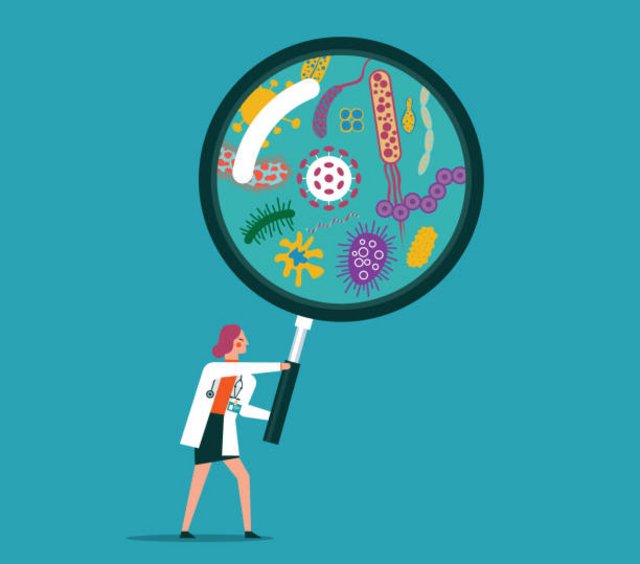Helpful Tips On Antibiotics | |
|
Antibiotics treat or stop certain kinds of bacterial infections, such as strep throat or some ear infections. They do not work against viruses, which cause many common illnesses such as influenza and colds.
The use of antibiotics is a good idea to reduce the development of resistance. It is essential to follow all the prescribed dose, and not save leftover antibiotics for later use. Do Not Skip DoseAntibiotics are powerful treatments for bacterial infections and are able to help save lives. The misuse and abuse of antibiotics is a contributing factor to the growing issue known as resistance to antibiotics. Antibiotic resistance occurs when bacteria which are treated with antibiotics develop a way to escape from the side effects of the drug. The bacteria become resistant to antibiotics and can grow in size and multiply, causing diseases. If you are taking your medication on time, it helps to keep a steady level of the drug in your body. Make sure to plan the dose around other activities you do every day, such as eating breakfast or showering. You can also use medicine reminding apps for your phone or get a pillbox equipped with distinct compartments so that you can to stay on the right track. Antibiotics shouldn't be given to others.Researchers say an alarming percentage of parents share antibiotics prescribed to them or gave to their children, and this is contributing to the increase in fatal resistant bacteria. The antibiotics they are in don't kill bacteria, but they can develop their defenses more quickly when exposed to them more frequently. Antibiotics are effective against the bacterial infection, but don't treat common illnesses such as colds and flu or nasal congestion (unless you're suffering from strep throat). Antibiotics can increase your chances of becoming sick after treatment. If you want to learn details on anti-biotics, you have to look at http://americanvisionmagazine.blogspot.com/2013/05/consumer-group-urges-trader-joes-to.html website. It is not necessary to take antibiotics when you follow infection prevention methods such as washing hands regularly, cooking your foods in a clean manner and stay up-to-date on your vaccines. You can either drop off the remaining antibiotics at your neighborhood drug disposal center, or you can throw them in your household garbage. Do not save any leftoversA recent survey found that parents with 48 percent who had leftover antibiotics from their previous prescriptions didn't properly dispose of their leftover antibiotics. Instead, they saved the antibiotics for future use, and then gave them for others to utilize. Many of these were given to children's siblings who they had originally prescribed, but others went to children and adults outside of the family. Sharing and saving antibiotics can be a dangerous practice, especially since different infections require different antibiotics. Plus, some antibiotics may expire and not perform as effectively. An incorrect antibiotic may delay treatment, and bacteria can develop resistance. It can also lead to worsening illnesses. The most effective way to stop this is to follow your entire course of prescription antibiotics prescribed by your doctor. Avoid mixing antibiotics with Other medicinesThe use of antibiotics is a way to treat serious illnesses and even save lives, however only if they are used in a proper manner. Incorrect use can lead to resistance, which can make future infections harder to treat. Some antibiotics don't mix well with food or other medications. Acidic foods such as citrus juices and fruit such as tomatoes, chocolate, and soda can decrease the efficacy of certain antibiotics. It is also recommended to take a break of a few hours prior to taking certain supplements like iron, calcium and antiacids such as Tums or Maalox while taking antibiotics. The effects of antibiotics could affect the absorption or utilization of vitamin B12 in some foods including milk or supplemented cereals. Discuss with your doctor concerning these concerns. They can help you plan meals that will provide your body with the vitamins and minerals that required while taking antibiotics. Don't dispose of leftoversCopp states that when we dispose of leftover antibiotics, through flushing or pouring in the sink, they release the drug in the water and air in the hopes of promoting the growth resistance of bacteria to these medications. The leftovers may also fall into the wrong hands and be misused, like when a child takes them for a cold or flu that isn't caused by bacteria or when a parent gives their own children improper doses of antibiotics or opioid pain medications such as Bactrim and Hycet (sulfamethoxazole-trimethoprim and hydrocodone-acetaminophen), which are meant for adults. Researchers pretending to be parents in a recent study found that more counseling was required regarding how to dispose of antibacterials. The possibility is that the patients and their families receive assistance in locating "take-back activities" that are held in communities in which they are able to drop off unused medicines to help prevent unnecessary antibiotic use and side consequences. | |
 |
